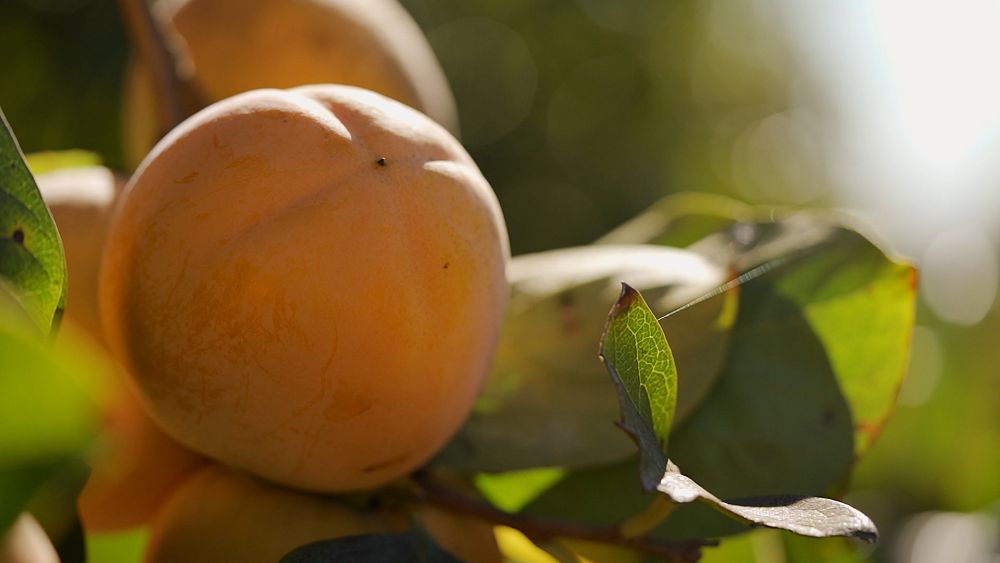
For this episode of Here We Grow, I visited Valencia to explore the abundance of citrus fruits, persimmons and peppers growing there.
Spain has an impressive 24 vegetable appellations of origin and 19 designations of origin for different fruits.
My first stop is in Palmera at the Todoli Citrus Foundation, a vast botanical garden with more than 400 varieties of citrus fruits.
Vicente Todolí, an art curator and former director of London's Tate Modern, has created a unique open air establishment in his hometown.
He says it has certain similarities to his previous role, although with one important difference:
"Here, you don't have to change the collection like in museums, because it changes every day.
"Fruits grow, they mature, the light changes."
Developing the Citrus Foundation saved his family’s land from being built on:
"It was a plan to defend the land, the first reason was to protect it.
"The second was to develop a collection to encourage research into citrus fruits, not only from a botanical point of view, but also from anthropological, gastronomic and medicinal ones."
The Foundation was designed to appeal to and stimulate the five senses of visitors, while highlighting exotic citrus varieties from all over the world.
Vicente showed me lots of varieties, including citrus caviar, often used for haute-cuisine dishes and citrus medica, discovered by members of Alexander The Great’s travelling party during the 4th Century BC, which is also the first citrus fruit known to be brought to Europe.
Although these fruits first emerged eight million years ago at the foot of the Himalayas, they seem to have found the perfect climate here, by the Mediterranean.
My next stop is at Medavia in the Ebro Valley, where La Catedral de Navarra is based.
The company was founded in the 1940s by Petra López.
Her grandson Cayo Martínez, the company's current director, is keeping alive the tradition and passion of preserving the flavours of the countryside:
"We have been trying to keep the flavours of our products as close as possible to natural ones for four generations.
"What we want is for our customers to enjoy the product as if they were right here in the Ebro Valley, when they open a jar".
This attention to detail at La Catedral de Navarra begins on the land, from the planting of the seeds to the hand-picking of the vegetables.
Asparagus, artichokes, beans - all the flavours are carefully preserved and exported to 40 countries around the world.
My final stop is at L'Aleudia, where Kaki Ribera del Xúquer is based and where the delicious and exotic persimmon fruit is grown, aided by the rich soils, mild climate and low rainfall.
Spain is the world’s largest exporter of persimmons and 90% of national production is grown in Valencia.
Cirilo Arnandis, Chairman of Kaki Ribera del Xúquer, explains about one of the very nicest varieties, the Bright Red persimmon:
“This indigeous tree arose spontaneously in the Ribera region as a result of several spontaneous mutations and developments that ended up producing the wonderful Bright Red persimmon”.
"It contains tannins and antioxidants which make it the fruit of eternal youth!"
The secret behind the Bright Red variety is that it's seedless and its astringency is easily removed, so it can be eaten like an apple. Its sweet and delicate flavour complements its rich nutritional value.
October 22, 2020 at 09:03PM
https://ift.tt/3dLdwDe
Exploring Valencia's abundant - and special - fruits and vegetables - Euronews
https://ift.tt/2CyIOeE
Vegetable
No comments:
Post a Comment